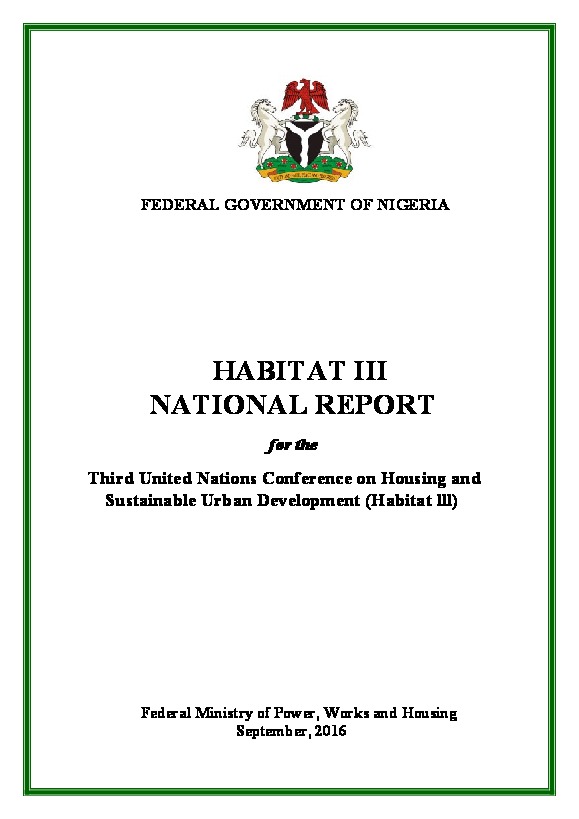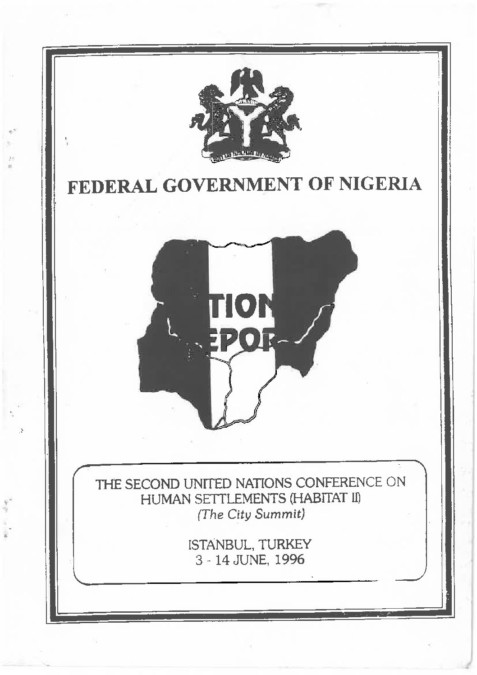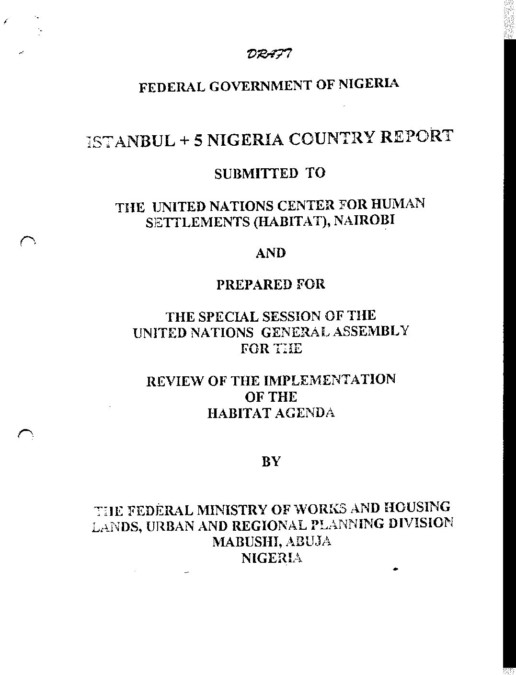
Nigeria
Urban indicators:
| Value | Year | ||
| Surface area (sq km) | 923768 | 2014 | |
| Population (proj., 000) | 186988 | 2016 | |
| Pop. density (per sq km) | 205.3 | 2016 | |
| Capital city | Abuja | 2015 | |
| Capital city pop. (000) | 2440 | 2015 | |
| Population growth rate (average annual %) | 2.7 | 2010-2015 | |
| Urban population growth rate (average annual %) | 4.7 | 2010-2015 | |
| CO2 emission estimates (000 tons/tons per capita) | 95650/0.6 | 2013 | |
| Population using improved drinking water sources (urban/rural, %) | 80.8/57.3 | 2015 | |
| Population using improved sanitation facilities (urban/rural, %) | 32.8/25.4 | 2015 |
| 1995 | 2005 | 2014/2015 | |
| Urban population ('000) | 34,919 | 54,541 | 87,681 |
| Level of urbanization (%) | 32.2 | 39.1 | 47.8 |
| Proportion of urban population living in slum areas (%) | 73.5 | 65.8 | 50.2 |
| Urban Slum Population ('000) | 31,538 | 42,783 | 42,067 |
| Value | Year | |
| Urban Gini Coefficient | 0.54 | 2006i |
| Urban poverty headcount ratio based on national poverty lines | 34.1% | 2009 |
National Report:
National Report Executive Summary:
As urbanization rates continue to rise worldwide, the task of achieving sustainable and equitable urban development has become a critical challenge for most countries, particularly in the developing world where almost all of the new urban population growth is expected to occur. This poses significant challenges with serious implications for development policies, the quality of life of people and the environment. In Nigeria, the Government at all levels is responding to this new urban reality by adopting measures to promote sustainable urban development, and to redress urban inequalities. There is a strong commitment to effective planning and management to ensure that Nigerian cities develop into centres of productivity and strong agents of social and political change.
Nigeria’s National Report reviews the progress and achievements in implementing the Habitat Agenda adopted at the United Nations Conference on Human Settlements (Habitat II) in Istanbul, Turkey in 1986. It sets out the imperative considerations in implementing the New Urban Agenda that will emerge at the United Nations Conference on Housing and Sustainable Urban Development (Habitat III) in Quito, Ecuador in October, 2016. The Report addresses six thematic issues: (a) Urban and Demographic, (b) Land and Urban Planning, (c) Environment and Urbanization, (d) Urban Governance and Legislation, (e) Urban Economy, and (f) Housing and Basic Services. Under each theme, the issues, challenges, and future priority actions for a New Urban Agenda are identified.
The Federal Ministry of Power, Works and Housing (which evolved from the former Federal Ministry of Lands, Housing and Urban Development) coordinated the preparation of the Habitat III National Report and the preparatory activities for the Habitat III Conference, with active support from the multi-disciplinary National Habitat Committee which was inaugurated on 20th February, 2014. The Report profited from fruitful exchanges and contributions of many Stakeholders, including Academic and Research Institutions, the UN-Habitat Programme Support Office, the Media, and the Private Sector, including CSOs, NGOs and CBOs. It also drew from the deliberations of the National Urban Forum held in Abuja on 13th and 14th October, 2014. The Forum was an integral component of the 2014 National World Habitat Day commemoration, and had the theme: ‘Planning and Managing Housing and Sustainable Urban Development in Nigeria in the Post-2015 Development Period.’ The Report also considered the commitments of the 2030 Sustainable Development Agenda with a focus on Goal 11 of building sustainable cities and communities, the Africa Agenda 2063 Vision, and other global urban development frameworks.
The task of managing human settlements in the 21st century is certain to increase in scale and dimension as urban centres continue to absorb the growing population and expand. Much will be required to be done. Towards this end, Nigeria will remain resolute in meeting the expectations of the people and upholding the principles of human dignity, equality and equity in pursuing sustainable urbanization that offers equal opportunities for all.
Statistics:
Urban housing indicators
People living in slums (%)
Basic services and infrastructure
Urban population with access to safe drinking water (%)
Urban population with access to adequate sanitation (%)
Urban population with access to clean domestic energy (%)
Urban population with access to public transport (%)
Level of effective decentralization
Policies and legislation on urban issues that local governments contributed to formulating since 1996 (%)
Indicators for urban policies, legislation and economy
Local authorities having implemented urban policies supportive of local economic development and creation of decent jobs and livelihoods (%)
Local authorities having adopted or implemented urban safety and security policies /strategies (%)
Share of national gross domestic product (GDP) that is produced in urban areas
Statements by Nigeria:
-
Habitat III Plenaries
-
Intersessionals: Informal Intergovernmental Meetings (May 2016)
- Statement – 18 May (by Nigeria, 1) - English Made by Nigeria on Behalf of African Group
- Statement – 18 May (by Nigeria, 2) - English Made by Nigeria on Behalf of African Group
- Statement – 19 May (by Nigeria, 1) - English Made by Nigeria on Behalf of African Group
- Statement – 19 May (by Nigeria, 2) - English Made by Nigeria on Behalf of African Group
- Statement – 20 May (by Nigeria, 1) - English Made by Nigeria on Behalf of African Group
- Statement – 20 May (by Nigeria, 2) - English Made by Nigeria on Behalf of African Group
Statements by other countries on behalf of African Group and G77 and China:
-
Habitat III Plenaries
-
Intersessionals: Informal Intergovernmental Meetings (May 2016)
- Statement - 18 May (by Thailand) - English Made by Thailand on Behalf of G77 and China
- Statement - 18 May (by Jamaica) - English Made by Jamaica on Behalf of G77 and China
- Statement - 19 May (by Jamaica) - English Made by Jamaica on Behalf of G77 and China
- Statement - 19 May (by Kenya) - English Made by Kenya on Behalf of G77 and China
- Statement - 20 May (by Jamaica) - English Made by Jamaica on Behalf of G77 and China
- Statement - 20 May (by Thailand) - English Made by Thailand on Behalf of G77 and China
Events:
- At the Habitat III Conference:
- More events:
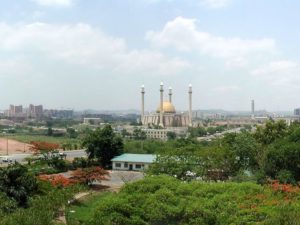
Regional Meeting: Africa
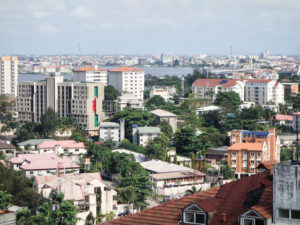
National Urban Forum Nigeria I
We thank the Government of Nigeria for hosting the Habitat III Regional Meeting and for their contribution to the Habitat III Trust Fund. The support of the Government of Nigeria helped ensuring the participatory and inclusive nature of the Habitat III process.

